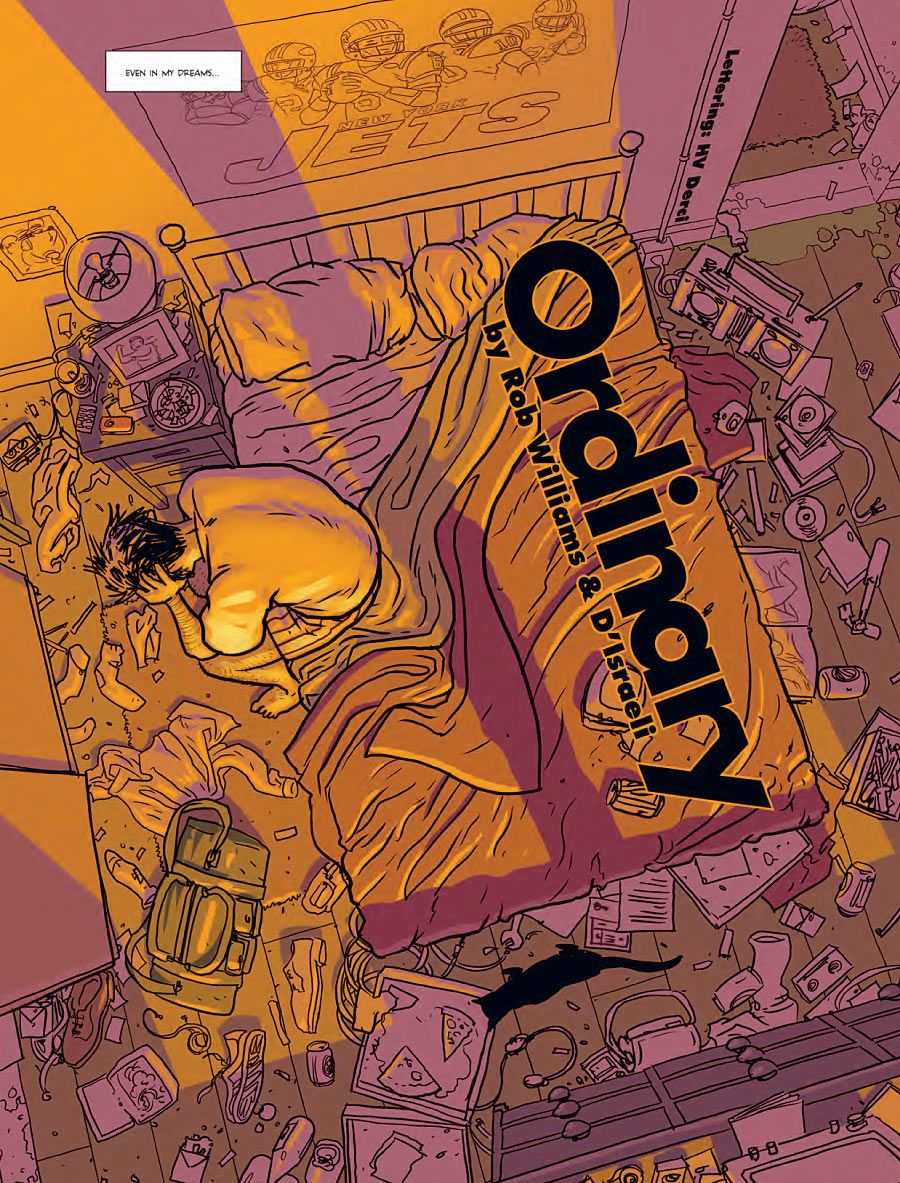In Rob Williams and D'Israeli's "Ordinary," Michael is just your average man, though he may be a little down on his luck: he owes money to a few unsavory characters, his partner is fed up with him, he's divorced, and he hasn't seen his kid in a few weeks. Things get a little topsy turvey for him when everyone around him starts to manifest superpowers -- except for him! As Michael's ordinariness becomes extraordinary, "Ordinary" #1 has some trouble with cliches but ultimately succeeds with genuine humor and some lovely artwork.
In effort to set up Michael's world, Williams and D'Israeli fall back on quite a few tropes in an effort to speed up development and add a little humor. While this works somewhat in a few places, it mostly drags the plot down. For instance, Michael encounters two black thugs demanding money from him only a few pages in; later, he has an exchange with an older woman who doesn't know when to stop talking and watches a nerd-turned-dragon accidentally knock a helicopter out of the air as he trills about how jealous his forum friends will be. We don't get to see too much of these characters before their personalities manifest in a supernatural way, but even then they seem rather contrived. Although short work is made of these cliches, their use is borderline cringe-worthy.
These problems aside, Michael's situation ends up being just as hilarious as it sounds. As the world goes to hell around him, he reacts in a perfectly natural way: with a lot of screaming, panicking, and a hasty trip to the bar. Although Michael reacts accordingly, the supporting characters don't seem all that bothered by their new abilities; most of them don't quite get a say in this matter, as the focus stays on Michael and his reactions for the humor of it, but they largely go about their business, be that working, panhandling, or milling about the streets. This lands Michael's reactions in stark contrast to those people who were physically affected, ramping up the humor by way of comparison.
D'Israeli's artwork fits the story's tone to T. He isn't afraid to get a little wacky with the character design, especially once the citizens begin to change. What's most enjoyable, however, is Michael's body language; from the moment he curls up in fear on a client's couch to his resigned acceptance in the taxi cab, he steals the show. He also contributes some nice texture to the book, especially in one full page scene where Michael stumbles onto the hazy, sunny New York sidewalk. D'Israeli's color pallet is a little bland for such a bizarre, outlandish story; that is, he uses mostly pastel colors, with a lot of white shining through, so that the scenes don't quite pop off the page. Likewise lackluster, his layouts leave a lot of blank space between panels.
"Ordinary" #1 isn't quite extraordinary, but it's got more than a few chuckles in store for those who pick it up. Williams and D'Israeli have a fantastic concept on their hands; hopefully, they manage to beef up their execution before the run is out.

